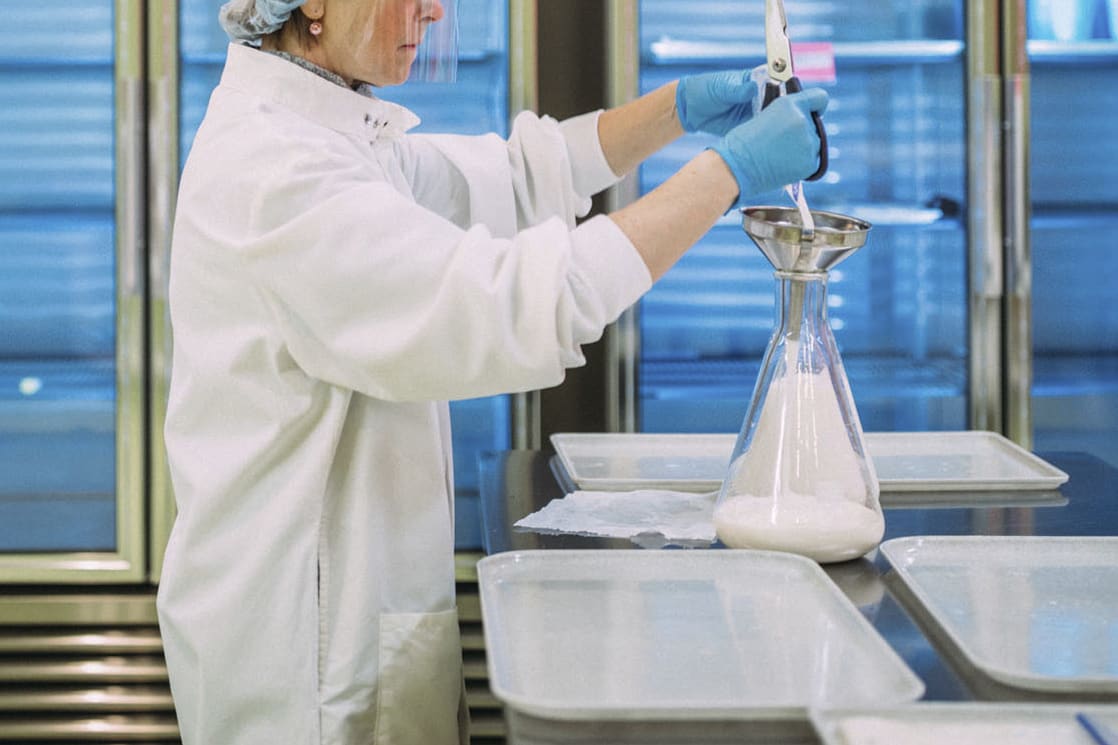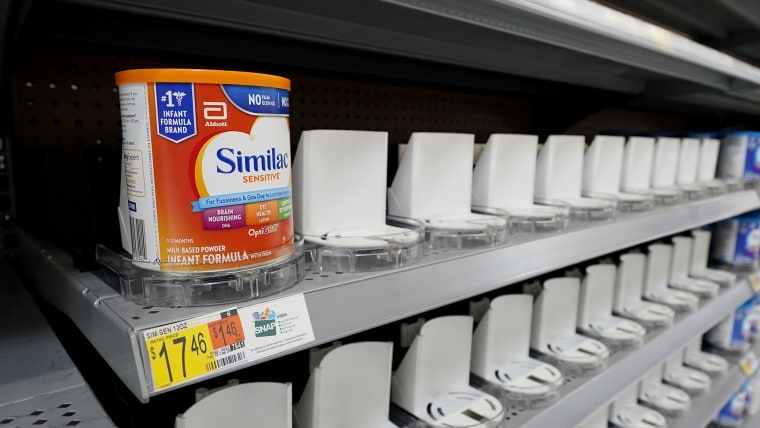A baby formula shortage has prompted a “major surge in interest” in donor breast milk, according to Lindsey Groff, the executive director of the Human Milk Bank Association of North America, which accredits nonprofit milk banks.
With the formula shortage worsening in recent weeks, “every milk bank that I have spoken with has seen a major increase in demand,” Groff said, adding that premature or medically fragile infants, such as those in the neonatal intensive care unit, receive priority for donor milk but that healthy, full-term babies can be recipients as well.
At Mothers’ Milk Bank at Austin in Texas, one of the largest milk banks in the United States, requests for donor milk started ticking up in February, when a product recall added to existing supply chain woes.
The number of requests has “increased tremendously” in the last three weeks, with 30 extra calls each week to the milk bank, said Kim Updegrove, the milk bank’s executive director and the chairperson for the standards committee at the Human Milk Bank Association of North America.
Like other parents across the country, those reaching out to Mothers’ Milk Bank at Austin are frustrated by the bare shelves they keep encountering at grocery stores. They either can’t find formula at all or their infants are not tolerating whatever formula they have had to switch to, Updegrove said.
“Some are desperate. Some are angry. Some are sobbing,” she said of parents who are calling, some with just a day’s worth of formula left in their pantries.
“The challenge is not only to feed these infants, but to reinforce to parents that they are doing a great job,” she added. “There is no judgment here. They are reaching out. That’s part of problem-solving.”
Mid-Atlantic Mothers’ Milk Bank in Pittsburgh, meanwhile, has increased its donations by 20 percent in the last three weeks to meet demand, said Denise O’Connor, its executive director and a lactation consultant.
“I suspect this sustained demand is going to maintain,” she said.
How donor milk is screened
Accredited milk banks carefully screen donors through a verbal questionnaire, written clearance from a physician and a blood test. The milk they donate is tested and pasteurized to eliminate any pathogens.
Experts strongly advise against receiving breast milk from unknown sources, such as social media groups, where few precautions, if any, are taken to ensure the safety and purity of the product. Sellers may dilute breast milk with water or cow’s milk; the milk can also be tainted with bacteria or other dangerous contaminants that milk banks stringently monitor for.
“We aren’t aware of what medications someone might be on, or the lingering effects of antibiotics in their system,” said Jenna Streit, advancement director for The Milk Bank in Indianapolis, which last year received donations from 810 donors in 20 states. “We are really in touch with our donors after they’re approved. We make sure none of their medications have changed.”
Streit said her organization has received only about one or two calls a day so far from formula-feeding moms inquiring about breast milk donations. Most had not heard of milk banks before this, she said, so part of the conversation is educating them about the process of receiving milk. Donor milk at The Milk Bank costs $4.50 per ounce, which is comparable to the national average of $4 to $5 an ounce to cover processing fees, according to Groff. It is often covered by hospitals when babies are in neonatal intensive care units; insurance will sometimes cover the cost for outpatients when there is a medical need.
In Valhalla, New York, the New York Milk Bank only dispenses donor milk to those with a prescription. While calls from parents who have not had luck finding formula have only been trickling in, the New York Milk Bank has seen an explosion in women volunteering to donate their milk over the past month as the formula shortage has made headlines, said Linda Harelick, executive director.
“Our phones are ringing off the hook,” she said. “It’s a pretty rigorous screening process, and we have been approving milk donors at record numbers.”
Groff hopes that will be the silver lining to the formula shortage at other milk banks, too.
“Everyone is aware of donating blood and organs, even hair. But there is very little known about donating breast milk,” she said. “What we hope is that people are becoming more aware of the ability to donate breast milk in this time of crisis.”
Source: | This article originally belongs to Nbcnews.com











